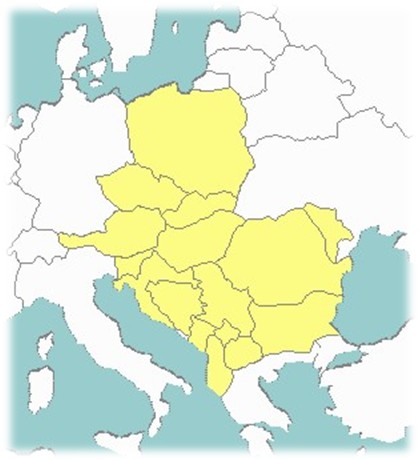









Technical University of Radom, Poland
Faculty of Mechanical Engineering
Institute of Vehicles and Machines Maintenance
Prof. PhD Eng. Andrzej KOTNAROWSKI
Short description, research and educational contributions
The Faculty of Mechanical Engineering (FME) is the oldest faculty of the Technical University of Radom. It was established in 1950, as in 2003 the Faculty moved to a new, modern campus. The structure of FME includes: Institute of Vehicles and Machines Maintenance; Institute of Machine Building; Institute of Applied Mechanics and Power Engineering; Department of Physics. Currently the number of students is 1100 in three levels of education (Bachelor, Master and Doctor). Some of the specialized laboratories of the Faculty are of: Surface Engineering, Materials and Thermal Treatment, Machining and Assembly, Computer Engineering Methods, Mechanics, Drive Units Design, Thermal Engineering, etc. The aim of studies in the FME is to prepare the engineering staff for automotive and mechanical companies, as MSc level is focused primarily on individual, creative engineering work. The didactic work is dependent on the demand of the local and national job markets: construction offices, automotive expertise companies, insurance companies, or vehicle maintenance institutions.
The Institute of Vehicles and Machines Maintenance offers the specialties as: in BSc - vehicles maintenance; vehicles technology; vehicles technology and transport insurances; motor transport; in MSc - vehicles maintenance; vehicles technology and expertise; motor transport and logistics; in Doctor’s degree - vehicles construction and maintenance; mechanics. The teaching and research activities are carried out in the following laboratories:
- Tribology;
- Polymer Coatings;
- Lubricants and Fuels;
- Vehicles Mechatronics;
- Vehicles and Engines.
In the frames of scientific cooperation by this project the Institute of Vehicles and Machines Maintenance will contribute to the joint researches in next areas:
• Tribological investigations of sliding friction pairs;
• Examination of selective transfer phenomenon;
• Investigation on influence of lubricating and cutting oils modification with addition of nanostructures (e.g. metal nanoparticles) on sliding friction joints tribological properties;
• Examination of tribological processes effects on friction surfaces state (investigation with use of: optical an electron microscopy, X-ray spectroscopy, surface roughness analysis);
• Examination of protective coatings generation in tribological processes with metal nanoparticles use;
• Formation of polymer coatings with nanofillers (kind of nanofiller selection, optimization of nanofiller quantity, design of application technique);
• Multicriterial investigations of polymer coatings quality (investigation with use of: optical an electron microscopy, X-ray spectroscopy, IR spectroscopy, DMA analysis, surface roughness analysis);
• Investigations of operational factors influence on polymer coatings reliability;
• Multicriterial prediction of durability of polymer coatings used in different conditions.


Copyright © 2012-2015, UCTM CEEPUS Tribology
Participating institution - partner






